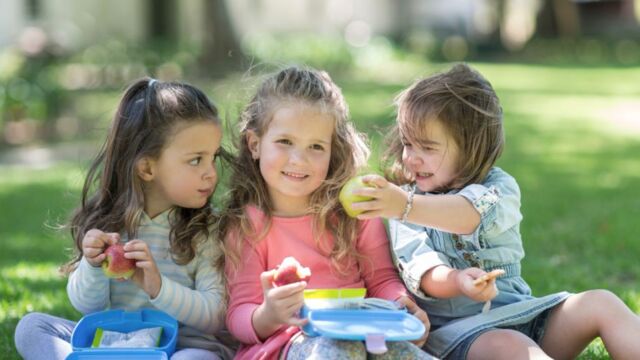Keep Away From Children: This Common Snack Could Be A Danger To Your Child

This is an average snack that most parents give to their children after school, however, new research carried out by the Royal Melbourne Institute of Technology warns about the composition of this particular goodie.
Three out of four rice-based products tested positive for concentrations of arsenic that highly exceed the EU guideline for safe rice consumption specifically for babies and toddlers.
Discover our latest podcast
A new study carried out in Australia has found that there is an alarming amount of arsenic found in rice-based products. The study, published in the International Journal of Environmental Research and Public Health, revealed the danger that children are exposed to when they regularly eat rice snacks.
More under this adMore under this adA researcher and Associate Professor of environmental toxicology at RMIT University, Suzie Reichman declared:
'While all the products we tested meet Australian guidelines, these do not reflect the latest scientific understanding on how arsenic affects the body. Children are far more vulnerable to the long-term toxic effect of metals like arsenic,'
Arsenic is a naturally occurring metal widely found in the air, soil and groundwater and it comes in two forms, organic and inorganic. The organic form of arsenic is considered safe. The inorganic arsenic, on the other hand, is a carcinogen linked to bladder and skin cancers.
More under this adMore under this adRice plants accumulate more arsenic than other similar plants, therefore, there are safety guidelines in Europe, specifically for babies and toddlers that are different from the guidelines for adults.
Rice-based products are growing in popularity among parents as they've become a common alternative for children who have a gluten intolerance. Long-term exposure to high amounts of inorganic arsenic is dangerous to human health.
More under this adMore under this adThe study tested 39 rice products for babies and toddlers found in Australian supermarkets. Reichman said:
'Rice can be safely eaten as part of a well-rounded, balanced diet, but if it is a child’s main source of carbohydrates, that could be a problem. As a general rule, we recommend that children under five eat rice in moderation and parents should avoid serving rice at every meal, to minimise the risk of exposure to arsenic.'
The British Specialist Nutrition Association, which represents manufacturers of complementary foods designed for children under three, insisted that if its members’ products were tested now, they would be compliant with the EU arsenic levels. The ones in the study were bought in February 2016, a month after the new policy took effect.
More under this adMore under this adA spokesman said: 'The safety of products is the top priority for BSNA members. Manufacturers carefully select and rigorously check all their raw materials to ensure they are safe and strictly compliant with current food safety regulations. Industry has been working proactively to reduce the levels of arsenic in food and it has been a focus of ongoing, long-term research. BSNA works across industry and with regulators in the UK and Europe to further increase our shared understanding of arsenic in foods.'